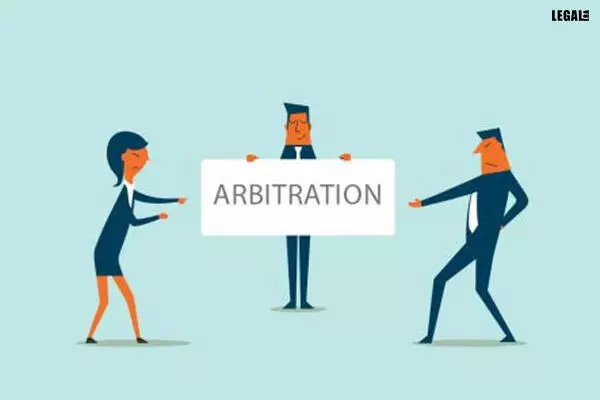- Home
- News
- Articles+
- Aerospace
- AI
- Agriculture
- Alternate Dispute Resolution
- Arbitration & Mediation
- Banking and Finance
- Bankruptcy
- Book Review
- Bribery & Corruption
- Commercial Litigation
- Competition Law
- Conference Reports
- Consumer Products
- Contract
- Corporate Governance
- Corporate Law
- Covid-19
- Cryptocurrency
- Cybersecurity
- Data Protection
- Defence
- Digital Economy
- E-commerce
- Employment Law
- Energy and Natural Resources
- Entertainment and Sports Law
- Environmental Law
- ESG
- FDI
- Food and Beverage
- Gaming
- Health Care
- IBC Diaries
- In Focus
- Inclusion & Diversity
- Insurance Law
- Intellectual Property
- International Law
- IP & Tech Era
- Know the Law
- Labour Laws
- Law & Policy and Regulation
- Litigation
- Litigation Funding
- Manufacturing
- Mergers & Acquisitions
- NFTs
- Privacy
- Private Equity
- Project Finance
- Real Estate
- Risk and Compliance
- Student Corner
- Take On Board
- Tax
- Technology Media and Telecom
- Tributes
- Viewpoint
- Zoom In
- Law Firms
- In-House
- Rankings
- E-Magazine
- Legal Era TV
- Events
- News
- Articles
- Aerospace
- AI
- Agriculture
- Alternate Dispute Resolution
- Arbitration & Mediation
- Banking and Finance
- Bankruptcy
- Book Review
- Bribery & Corruption
- Commercial Litigation
- Competition Law
- Conference Reports
- Consumer Products
- Contract
- Corporate Governance
- Corporate Law
- Covid-19
- Cryptocurrency
- Cybersecurity
- Data Protection
- Defence
- Digital Economy
- E-commerce
- Employment Law
- Energy and Natural Resources
- Entertainment and Sports Law
- Environmental Law
- ESG
- FDI
- Food and Beverage
- Gaming
- Health Care
- IBC Diaries
- In Focus
- Inclusion & Diversity
- Insurance Law
- Intellectual Property
- International Law
- IP & Tech Era
- Know the Law
- Labour Laws
- Law & Policy and Regulation
- Litigation
- Litigation Funding
- Manufacturing
- Mergers & Acquisitions
- NFTs
- Privacy
- Private Equity
- Project Finance
- Real Estate
- Risk and Compliance
- Student Corner
- Take On Board
- Tax
- Technology Media and Telecom
- Tributes
- Viewpoint
- Zoom In
- Law Firms
- In-House
- Rankings
- E-Magazine
- Legal Era TV
- Events
Oregon Supreme Court upholds the enforceability of arbitration agreement

Oregon Supreme Court upholds the enforceability of arbitration agreement
In the case of Gist v. ZoAn Management, Inc., the Oregon Supreme Court rejected the plaintiff's argument that the arbitration agreement was unenforceable as it limited the arbitrator's authority to award him relief.
The present issue arose when ZoAn Management, a delivery service company, hired Gist as a driver, and thereby classified him as an independent contractor rather than an employee. As a result, Gist filed a putative class action lawsuit against the company alleging that he had been misclassified as an independent contractor due to which he did not receive the wage as entitled under the Oregon law as an employee.
ZoAn filed a motion to compel arbitration pursuant to the Driver Services Agreement ("DSA") that Gist signed at the outset of his engagement. The DSA contained an arbitration clause requiring that "any dispute, claim or controversy" arising from the DSA be resolved through mandatory arbitration. However, Gist argued that the DSA's arbitration clause was "unconscionable," a legal doctrine that allows a court to strike a contract provision if it deems the provision so fundamentally unfair that it should not be enforced.
Specifically, Gist pointed to language stating that the arbitrator could not "alter, amend or modify" the terms of the DSA, which Gist argued would prevent the arbitrator from concluding that he was an employee rather than an independent contractor and was therefore entitled to damages.
In view of the evidence and submissions, the Supreme Court rejected Gist's argument and pointed to the language in the DSA granting the arbitrator the authority to resolve "any dispute, claim or controversy" as well as language allowing the arbitrator to strike specific portions of the DSA that were unenforceable while preserving the agreement as a whole.
Read together, these clauses meant that the agreement could not be plausibly read to prevent the arbitrator from deciding the merits of Gist's claims and awarding him damages or other relief if he prevailed. As a result, the Court reached its conclusion that the arbitration clause was enforceable.



